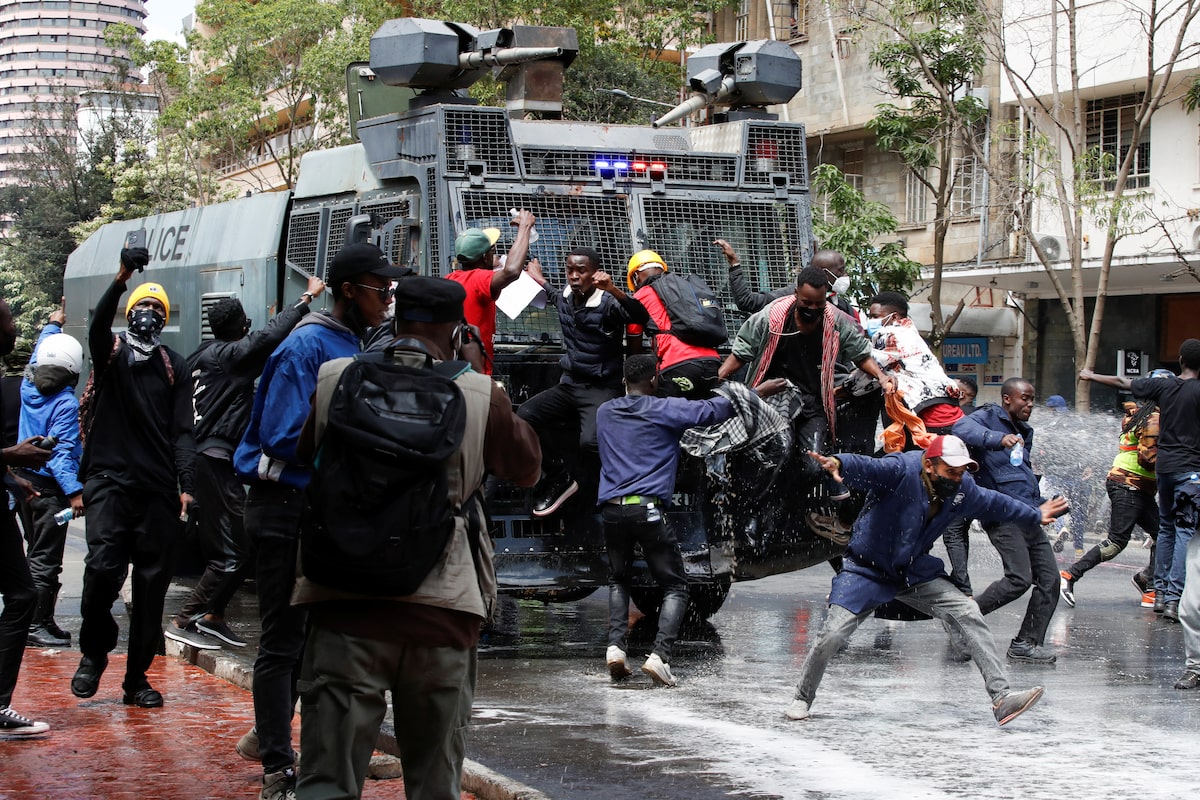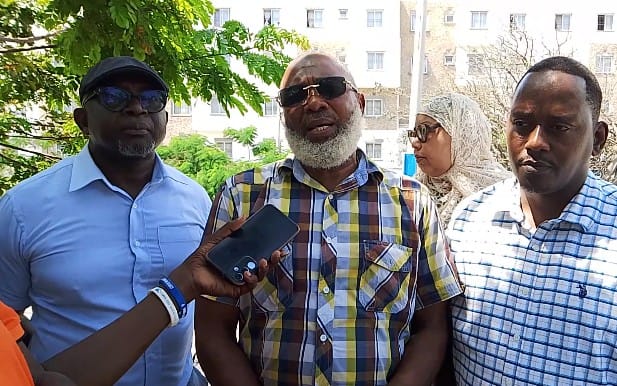The end goal: Gen Z revolution a call to action for Kenyan citizens

Their frustration, born from years of unfulfilled promises and broken systems, has catalysed a political awakening
"What is the end goal?"
This is the question that echoes through the streets, in restaurants, and in all public spaces where the voices of the youth resonate, following the unprecedented demonstrations by Kenya’s Gen Z unhappy with the way the affairs of the state are run.
More To Read
- State mulls flexible workplace culture as Gen Z pushes beyond suits and traditional norms
- Gen Z-led protests, floods dent Kenya's economic growth in 2024 to 4.7 per cent
- Butere Girls’ play 'Echoes of War' pulled from Western regional drama festival
- The year youth-led protests redefined political resistance in Kenya
- Kenya's Gen Z: The misunderstood voices amid rising political divisions
- Kenyan artists reflect Gen Z hopes and frustrations in new exhibition
The end goal, fortunately enough, started as something unexpected and will continue to evolve as such. But does the end justify the means, or do the means justify the end in this scenario?
This movement began not with a single spark, but with the simmering anger of a generation tired of systemic corruption, inequality, and the stifling status quo. The Kenyan Gen Z, unlike their predecessors, have decided enough is enough. Their frustration, born from years of unfulfilled promises and broken systems, has catalysed a political awakening across the country.
How did this all start?
The roots of this revolution are deep and tangled, stemming from historical grievances and a contemporary reality that offered no solace. For years, the older generations have navigated through the murky waters of Kenyan politics, often resigning to the inevitabilities of corruption and inefficiency. But Gen Z has a different mentality. No longer just an age group, Gen Z represents a mindset — one that refuses to accept the status quo and demands change.
The anger didn't just simmer; it boiled over. Social media, a tool at the fingertips of this digital-native generation, played a crucial role in mobilising and unifying voices. What began as isolated cries of frustration soon merged into a powerful chorus demanding justice, equality, and respect for the Constitution.
One pivotal moment that galvanised the movement was the bold action by Mercy Tarus who captured national attention last year as she spoke about a scholarship scandal in Uasin Gishu County.
In a public forum, Mercy stood up and directly questioned former governor Jackson Mandago about the scandal, a controversy involving mismanagement and corruption linked to funds meant for student scholarships. Her courage to confront authority resonated deeply with many Kenyans, symbolising the bravery and determination of the youth. This incident served as a catalyst, turning a simmering discontent into a full-blown movement.
The older generation, while often sceptical of change, has found a sense of pride in the resilience and determination of the youth.
"But the president listened to you guys," they say, acknowledging the undeniable impact of the protests. Yet, this acknowledgement comes at a high cost: over 50 lives lost. Did it take such a sacrifice for the government to pay attention?
The defenders of the status quo are rattled. For years, they have thrived in a system where things worked for a select few. Now, they face the daunting challenge of operating in a country where the demands are for equality and fairness.
The Gen Z protest has ignited a nationwide awakening. Coffee farmers are protesting over poor pay, doctors are demanding the posting of interns, and protests erupt almost everywhere when people feel unheard.
What has the Gen Z protest achieved so far?
It has done more than just rattle the status quo; it has set a precedent. This movement has shown that protest is a powerful tool for change, even in the face of state resistance. It has inspired other sectors of society to stand up for their rights and has highlighted the interconnected nature of all struggles for justice.
For instance, the protests have shed light on the plight of coffee farmers, who have long suffered from inadequate compensation despite their critical role in Kenya's economy. Doctors, too, have found their voices amplified, pushing for better working conditions and fair treatment of interns. These protests, once seen as isolated incidents, now form part of a broader narrative of resistance and demand for accountability.
So, what really is the end goal?
The vision is clear: a country with equal opportunity for everyone, where corruption is not normalised, and where the youth are not sacrificed on the altar of political expediency. It is a vision of a Kenya that respects its constitution and its people, a Kenya where every voice is heard, and every life is valued.
The end goal is a reimagined Kenya — one where justice and equality are not just ideals but realities. This goal requires a relentless commitment to fighting corruption, ensuring transparency, and building systems that work for all citizens, not just a privileged few. It involves creating opportunities for the youth, who are the backbone of the nation's future, and fostering an environment where their aspirations can be realised without fear of oppression or marginalisation.
The journey to this envisioned Kenya is fraught with challenges. The entrenched systems of corruption and inequality will not be dismantled easily. The government’s historical disregard for the Constitution and the rule of law poses a significant hurdle. However, the protests have demonstrated that persistent and unified demands for change can yield results.
For the Gen Z protesters, the fight does not end with the current achievements. Continuous vigilance and activism are necessary to ensure that the gains made are not rolled back. This generation must remain engaged in the political process, pushing for reforms and holding leaders accountable. Education and awareness campaigns can further empower the youth, ensuring that they are well-informed about their rights and the mechanisms available to protect them.
The Gen Z protest is a call to action for all Kenyans. It is a reminder that democracy is not a spectator sport; it requires active participation. It is an invitation to envision and work towards a better Kenya, one where everyone has a fair shot at success, where the government serves its people with integrity, and where justice is not a privilege but a right.
The end goal is ambitious, but it is within reach. It requires the collective effort of all generations, each contributing their unique strengths and perspectives. The older generation’s experience, combined with the youth’s energy and innovation, can create a powerful force for change.
The Gen Z protest in Kenya is more than a reaction to immediate grievances; it is a transformative movement with far-reaching implications. It has sparked a nationwide dialogue on justice, equality, and good governance.
The end goal is a reimagined Kenya — one that is just, equal, and thriving. Achieving this requires sustained effort, unwavering commitment, and the courage to envision a better future. The journey is long, but the destination is worth every step. The end goal is not just a dream; it is a promise of what Kenya can become.
Top Stories Today













































